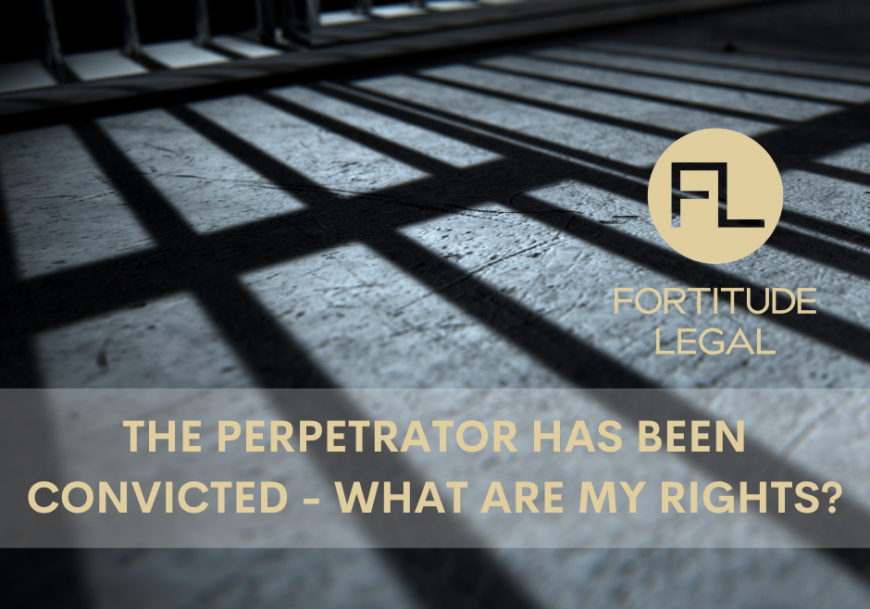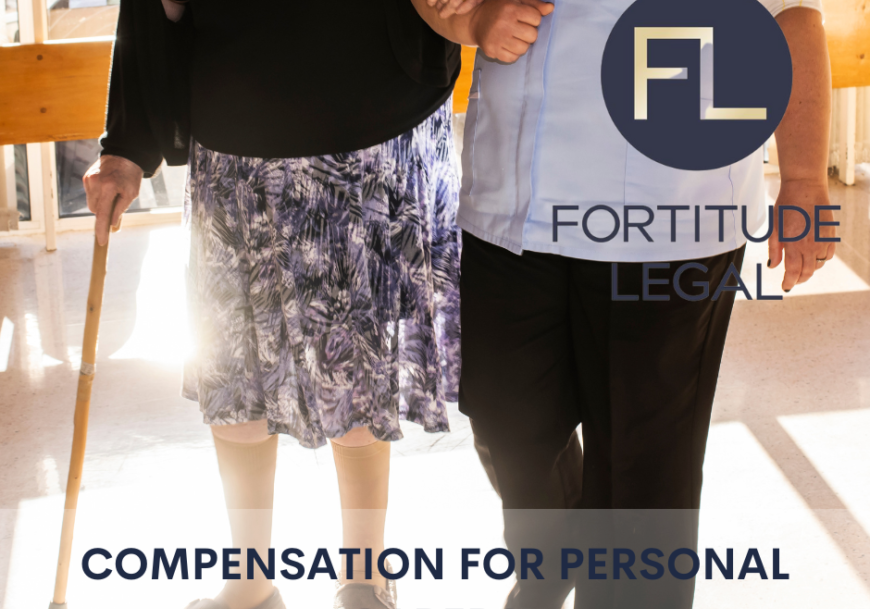The Perpetrator Has Been Convicted – What Are My Rights To Compensation?

The perpetrator has been convicted, now what?
If you have been injured as a result of a crime, you may be entitled to substantial lump sum compensation. This could include a claim against the perpetrator and/or the institution who failed to protect you from the crime.
If the perpetrator has either pleaded guilty or been found guilty of a crime, you can make an application under the Sentencing Act 1991 (Vic) to claim compensation from the perpetrator, for the harm caused to you or your family.
This includes all crimes that cause you physical or psychological harm, including:
- Sexual assault
- Assault
- False imprisonment
- Family violence
- Murder, manslaughter or other crimes causing the death of a loved one.
What compensation can I claim?
In a Sentencing Act application, the courts can order that the perpetrator pay you compensation for the following:
- Pain and suffering as a direct result of the offence
- Reasonable counselling and medical expenses
- Expenses actually and reasonably incurred or reasonably likely to be incurred
The perpetrator must have enough assets or the financial means to pay you compensation to make a Sentencing Act application viable. Prosecutors can also apply for a restraining order that limits the ability of the perpetrator to deal with their assets, to stop them from depleting their financial resources.
It is important to seek expert advice from a personal injury lawyer early, as you only have 12 months from the date of the conviction or guilty plea to make a Sentencing Act application.
What if the perpetrator wasn’t convicted?
If the perpetrator was not convicted, you cannot make a Sentencing Act application, but you may still be able to recover substantial compensation for your injuries.
You can still sue the perpetrator for common law damages, as the standard of proof is much lower in civil cases – you only need to prove the crime occurred and caused you injury on the balance of probabilities (that it was more likely than not), as opposed to the higher test of beyond reasonable doubt in criminal cases.
You can also sue the relevant institution for common law damages for failing to protect you from the perpetrator. These institutions can include schools, religious organisations, orphanages, sporting groups, hospitals, medical facilities, prisons, juvenile justice facilities and other government and non -government organisations.
Will a Sentencing Act application impact my other compensation entitlements?
Bringing a Sentencing Act application does not stop you from being able to sue for common law damages from the perpetrator and/or the institution that was responsible for the abuse. A Sentencing Act application also does not stop you from making a National Redress Scheme application.
What support services are available?
If you have been affected by abuse, you can contact the following organisations for support:
- National Sexual Assault and Domestic Violence Helpline: Phone: 1800 RESPECT (1800 737 732)
- Bravehearts Victoria: Phone: 1800 272 831
- Lifeline: Phone: 13 11 14
- Beyond Blue: Phone: 1300 22 4636
- Victoria Police – Sexual Offences and Child Abuse Investigation Team (SOCIT): Ballarat phone: 4372 9095
- Ballarat Centre Against Sexual Assault (CASA): Phone (business hours): 03 5320 3933 . Phone (after hours): 1800 806 292
- Bendigo Centre Against Sexual Assault (CASA): Phone 5441 0430
- The Sexual Assault & Family Violence Centre Geelong: Phone 222 4318
If you would like to have a confidential chat with our expert lawyers, please contact your local team at Fortitude Legal who will handle your enquiry sensitively, discretely and confidentially.








